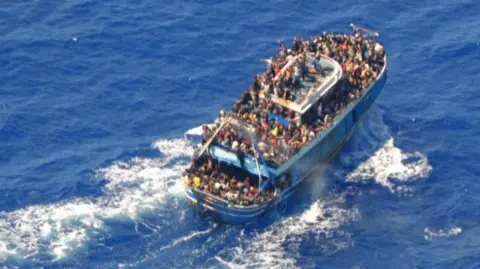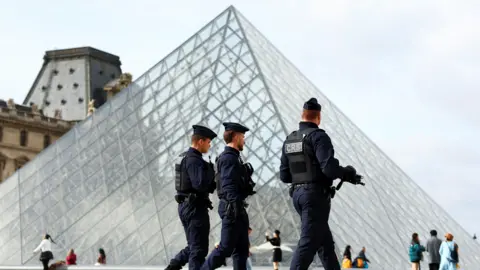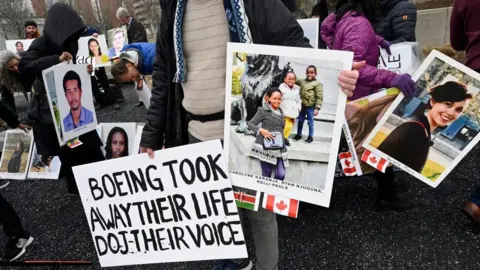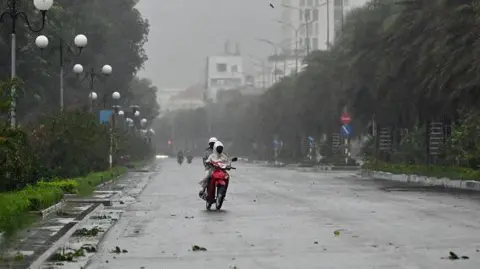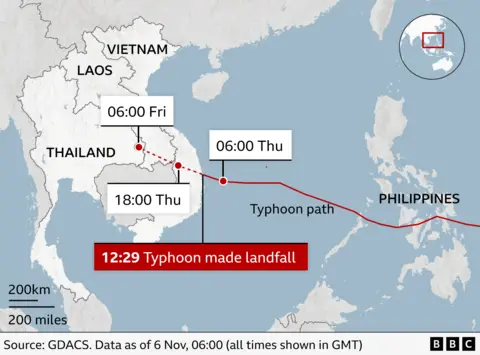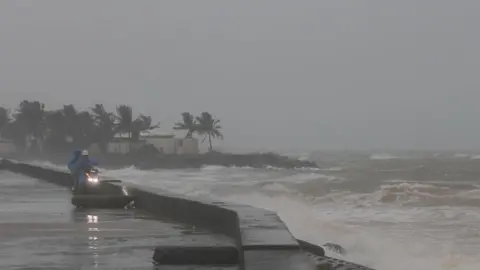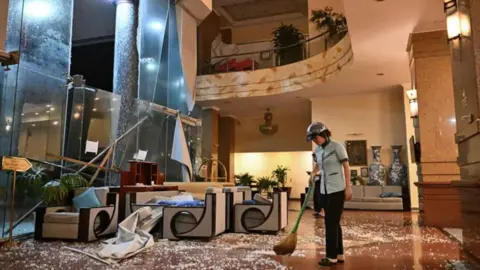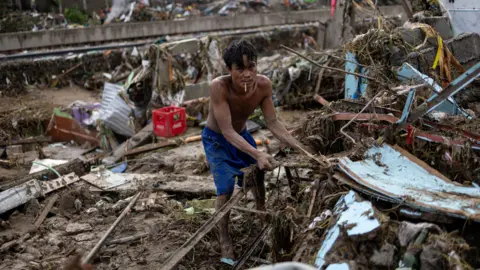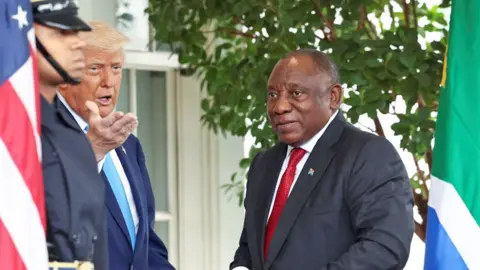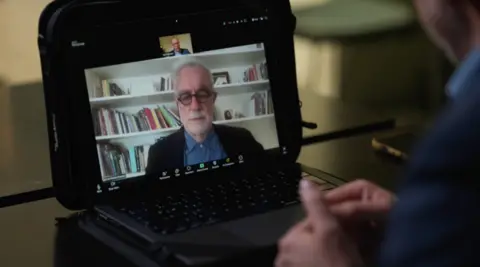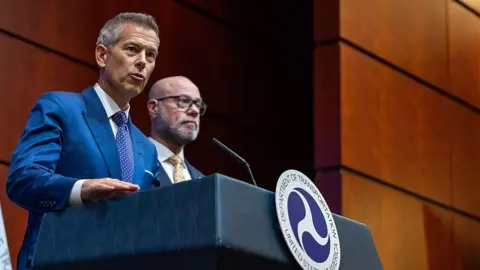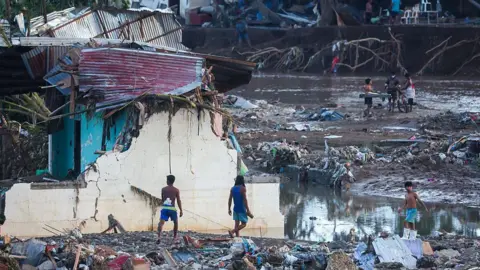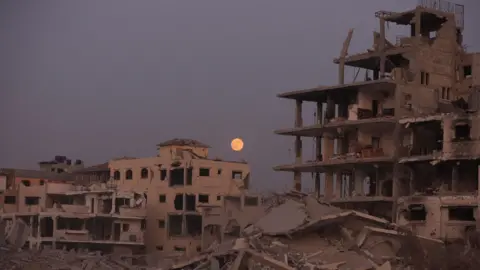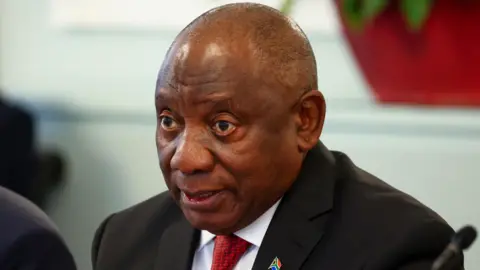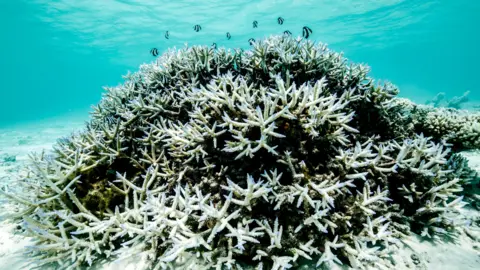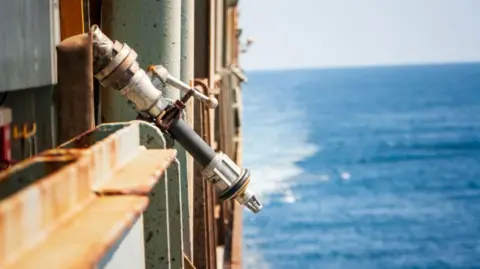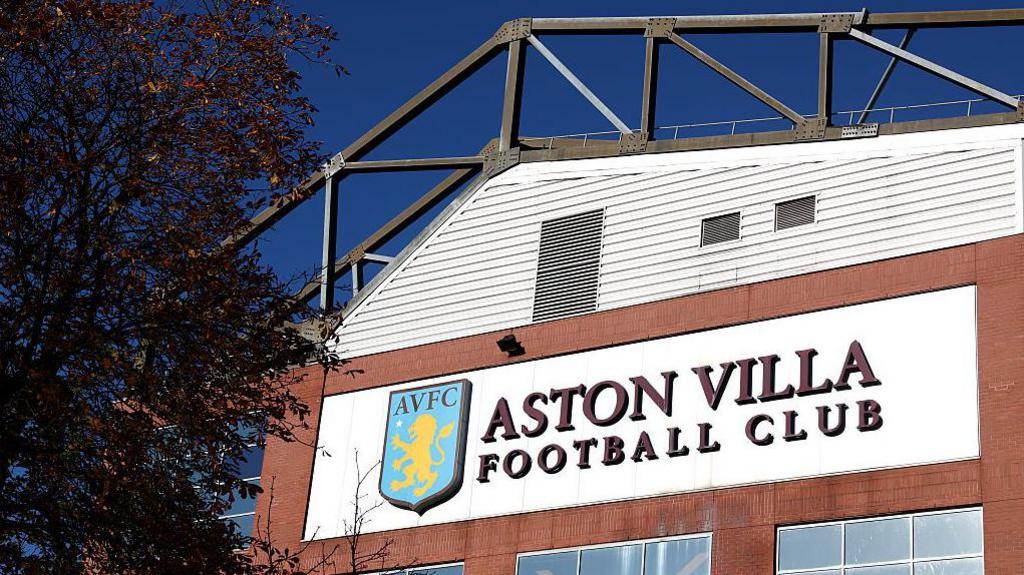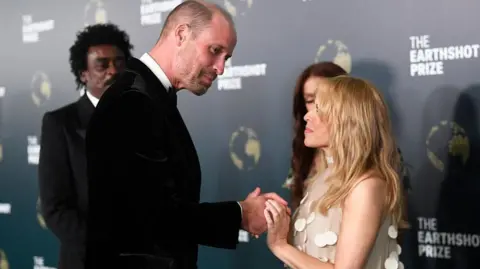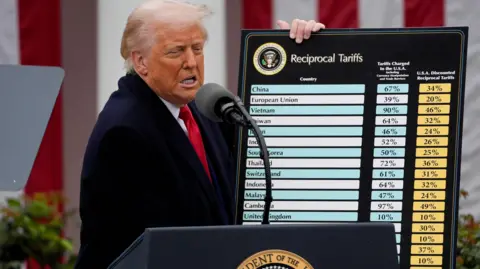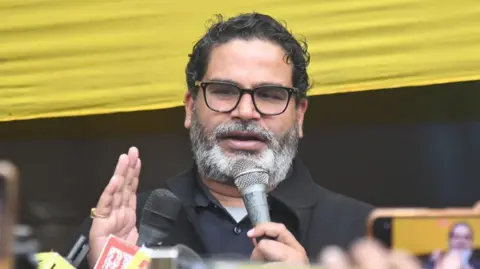Sudan's RSF militia says it agrees to humanitarian ceasefire

 Anadolu via Getty Images
Anadolu via Getty ImagesSudan's paramilitary Rapid Support Forces (RSF) has agreed to a proposal from the US for a humanitarian ceasefire, the group said on Thursday.
Sudan's military-led government has not yet responded.
The RSF issued the statement after seizing the city of el-Fasher in the western Darfur region.
Their 18-month siege blocked humanitarian aid despite repeated UN appeals, causing starvation among residents unable to flee. A UN-backed global hunger monitor has confirmed famine conditions in the city.
The RSF has been facing international backlash over reports of mass killings by its foot soldiers, which it has denied. But it has admitted "violations" were committed by individuals and arrested some.
Civil war broke out between Sudan's army and the RSF in April 2023. Both parties have agreed to various ceasefire proposals during the war, though none have stuck.
In September, the US along with the United Arab Emirates, Saudi Arabia and Egypt proposed a three-month humanitarian truce, followed by a permanent ceasefire and a transition to civilian rule.
The RSF's statement said it has agreed to enter the truce proposed by the four countries "in order to address the catastrophic humanitarian consequences of the war" and to allow the "urgent delivery" of aid.
The group also said it looks forward to discussions on ending hostilities "in a manner that addresses the root causes of the conflicts" and "creates the appropriate environment for a just, comprehensive, and lasting peace".
On Tuesday, before the RSF's statement, Sudan's Defence Minister Hassan Kabroun thanked US President Donald Trump's administration for its "efforts and proposals to achieve peace," in a speech broadcast on national television.
But he added that preparations for the Sudanese people's battle against the RSF were ongoing. "Our preparations for war are a legitimate national right," he said.
Sudan's Charge d'Affaires in Nairobi, Mohamed Osman Akasha, told the BBC on Wednesday that the military-led government would agree to stop the fighting only if the RSF was dismantled, surrendered its weapons, and its leader was held accountable.
"I have no information about a proposal for truce. The only thing that I know is the government of Sudan, the people of Sudan are very determined to defeat this militia," he said.

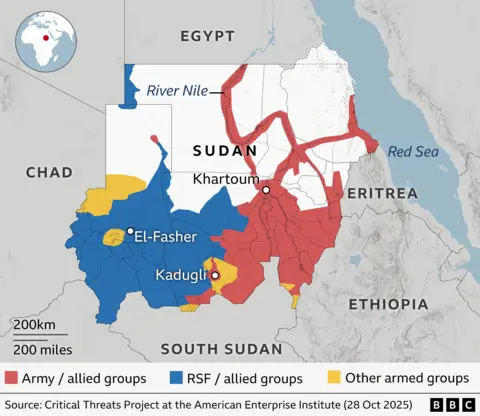
The RSF's truce announcement comes after an aid organisation warned that a network of community kitchens in Sudan was on the verge of collapse.
The locally run kitchens have operated in areas that are difficult for international humanitarian groups to access, but are facing closure due to neglect, shortages and volunteer exhaustion.
A report from Islamic Relief quoted one volunteer as saying most of these kitchens - which are crucial lifelines for millions caught up in the civil war - will close within six months.
The conflict has created what the UN has called the world's largest humanitarian crisis, with estimates that more than 24 million people are facing acute food shortages in Sudan.

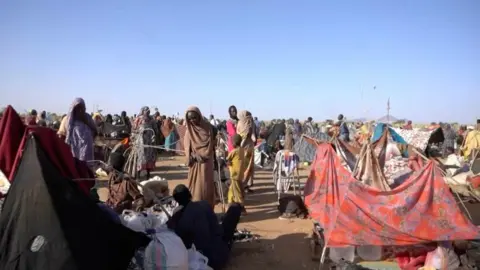 Reuters
ReutersMore than 60,000 people have fled el-Fasher, which was captured by the RSF at the weekend, the UN refugee agency said.
There were reports of systematic killings as the group's fighters took control of the city.
Survivors who escaped the siege told the BBC they had encountered "unimaginable" suffering and witnessed fighters torturing men trying to flee.
"We saw people murdered in front of us. We saw people being beaten. It was really terrible," Ezzeldin Hassan Musa said.
Last week, RSF leader Gen Mohamed Hamdan Dagalo announced an investigation into what he called "violations" committed by his soldiers in el-Fasher.
The group has since released footage which it says shows the arrest of a fighter accused of carrying out executions.
The UN's Human Rights Council said it would hold an urgent session on the situation in el-Fasher on 14 November.
